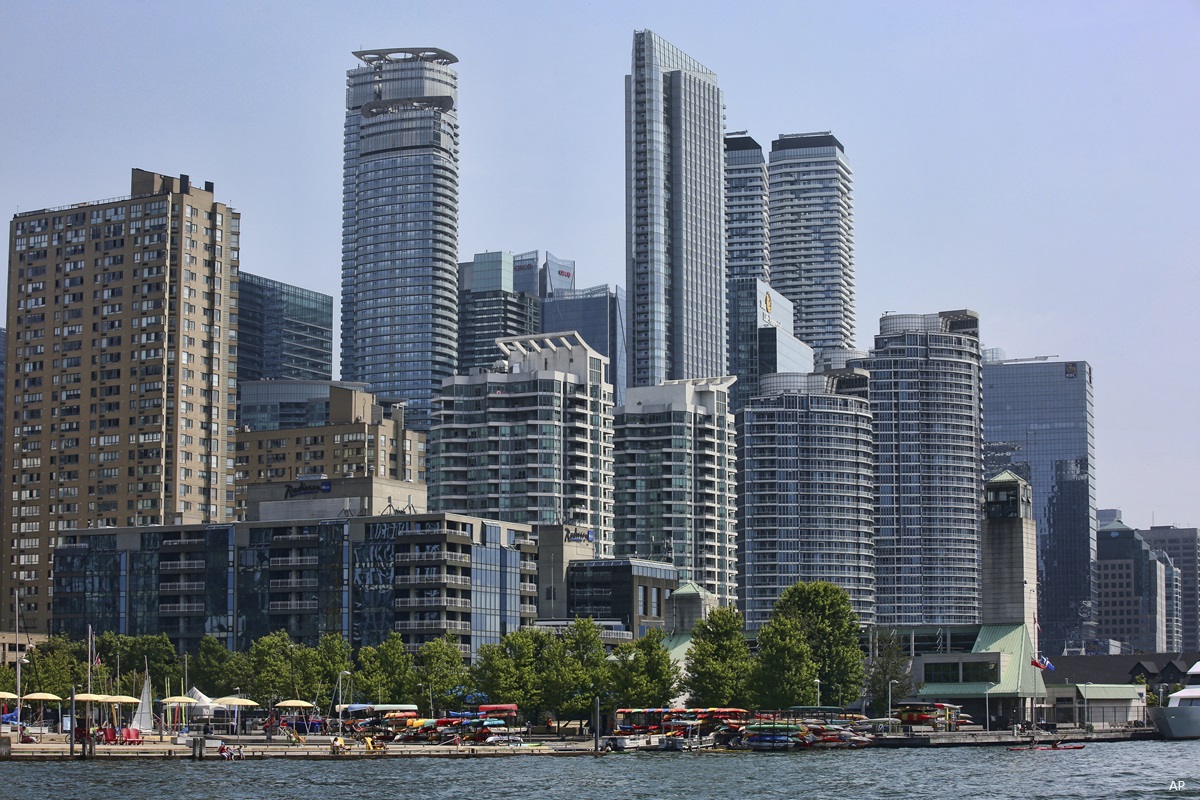First-time home buyers in Canada can’t make a down payment in Canada’s most populous cities, a survey found, with most respondents in Vancouver, Toronto and Vancouver feeling priced out of the market.
A survey released by Genworth Canada and Royal LePage shows that home prices have risen beyond the point of financial reality for prospective first-time home buyers.
Although aggregate home prices in Vancouver have rocketed to triple the value of homes in Montreal, respondents in Montreal (60%) were more concerned about being able to make a down payment than those in Vancouver (58%). Meanwhile, first time home buyers in Toronto are the most concerned (68%) as property values and sales volumes outpace those out West.
The savings of first-time home buyers can’t keep up with home prices, hurt by a stagnant wage problem in Canada. And it’s at the heart of a wealth gap among millennials that’s wider than ever, with those able to scrape together the funds for their own home far better off than those marginalized millennial renters.

Wealth at all costs
The trend is also a driver of record debt levels among millennials, as they now owe more than 250% of their income to mortgages. But for them it’s simply the cost of admission to be on the winning end of the stratifying wealth gap. “The number one concern millennials have these days is not being able to carry the mortgage, it’s about getting it,” says Phil Soper, President at Royal LePage, adding that among millennials he’s surveyed, 87% of them want to buy a home.
The willingness to pay a premium for housing in Canada’s big cities could be due to the demand for something close to work. The survey found that 59% of respondents in Toronto and 54% in Vancouver preferring proximity over square-footage. But Soper says they should look into the ‘Exurbs’, or communities within a reasonable distance to urban centers.
Soper notes that he’s starting to see many businesses leave the city in search of employees in smaller centres, reversing a long-standing trend of workers moving to where the work is. New technologies are also enabling more flexible working arrangements.
The emerging exurb phenomenon is seeing prices appreciating at two, sometimes three times the rate of properties in urban centres, Soper says. And eight in ten of the fastest appreciating communities are in Ontario.
Precipice policy
The Canadian federal government has been making moves to both reduce the debt threat driven by massive mortgages, and the barriers to entry the housing market.
The ‘stress test’ – rules enacted in January of last year to ensure borrowers can make payments if interest rates rise – is working, says Soper. He says raising the test by 2% was “a little arbitrary”, but he wouldn’t scrap it as this point. “Getting rid of it at this point would reduce the hurdle for buyers, but after time it would see prices increase further and raise the hurdle higher.”
It remains to be seen whether the new federal First-Time Home Buyer Incentive - which essentially provides up to 10% of the price of a new home as an interest-free loan towards a down payment - will help bridge the financial gap to make the dream of home ownership a reality.





.jpg)














